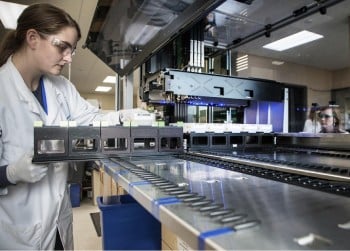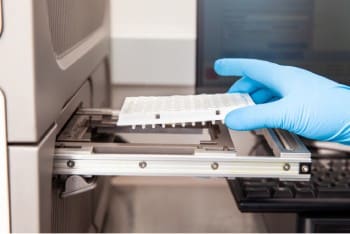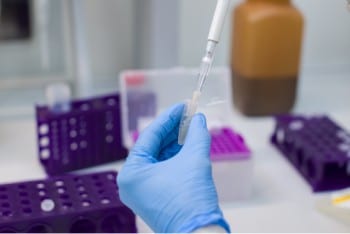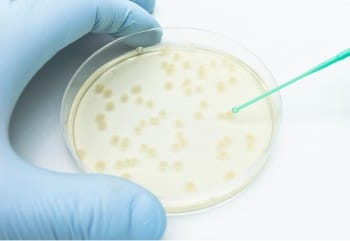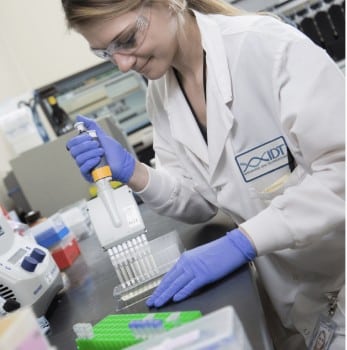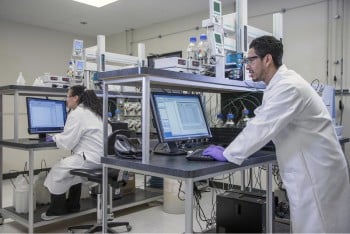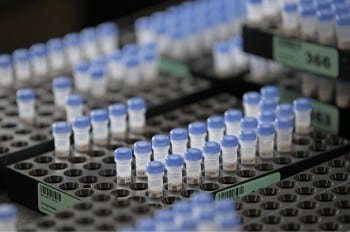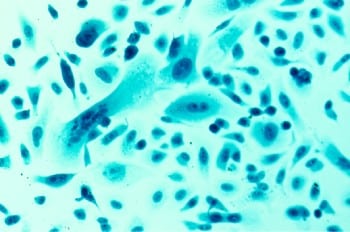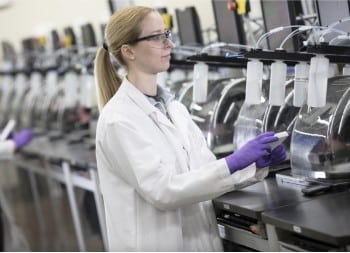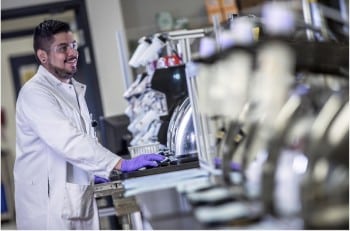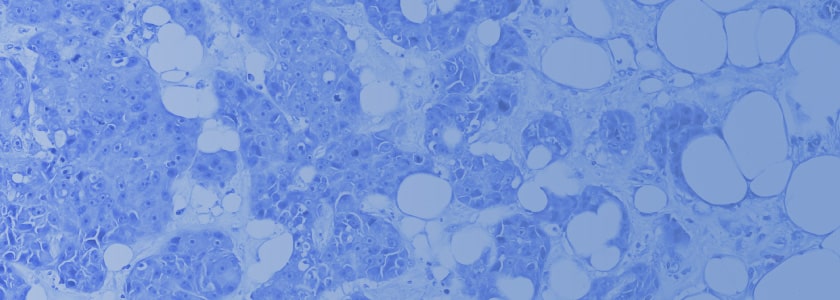The takeaway: Archer, now a part of IDT, has more than a decade of experience in providing next generation sequencing for key cancer research. Let’s look at their products in more details.
Archer was founded in 2013 in a small business incubator on the campus of the University of Colorado in Boulder and has since grown to become a leader in next generation sequencing (NGS) solutions for cancer research.
In December 2022, Archer was acquired by IDT. The addition of Archer’s NGS global research panels and bioinformatics positions IDT to move ahead as a leading oncology research solutions provider.
Today, Archer, through IDT, sells a portfolio of solutions focused on the solid tumor, blood cancer, sarcomas, and inherited disease space. Here are more details about its products, which are of particular interest in new cancer research and new research in cancer treatment options:
FUSIONPlex™ Panels
The Archer’s FUSIONPlex panels offer a scalable and easy-to-use solution for RNA-based sequencing that meets the research needs of every lab. With Anchored Multiplex PCR (AMP™) chemistry at the core and an integrated bioinformatic platform, FusionPlex targeted NGS assays offer streamlined fusion detection, novel or rare fusion detection, fusion breakpoints and isoforms of interest through a unified workflow and without knowledge of fusion partners. The FusionPlex products are seen as market leading solution due to AMP technologies capability of partner agnostic fusion detection.
VARIANTPlex™ Panels
VARIANTPlex is Archer’s easy-to-use, scalable and robust solution for DNA sequencing in your lab. These panels simultaneously detect and characterize copy number variations (CNVs), single-nucleotide variants (SNVs), insertions and deletions (indels), and microsatellite instability (MSI) status confidently from a low-input FFPE sample. The unified workflow, combined with lyophilized, single-use reagents, reduces labor, minimizes potential for user error, and eliminates the need for master mixes no matter the panel you choose. VARIANTPlex, like all of Archer's portfolio, is backed by AMP chemistry and is an integrated bioinformatics platform offering easy customization without impacting panel performance, making it suitable for a wide range of user groups.
LIQUIDPlex™ Panels
Archer’s LIQUIDPlex panel is a ctDNA based assay, allowing researchers to work with liquid samples—a smart alternative when biopsies may be impossible or impractical. Furthermore, a tissue biopsy does not reflect the entire tumor composition due to tumor heterogeneity and cannot be efficiently repeated during therapy. A liquid biopsy can help provide a better picture of the genomic profile of cancer by screening and identifying resistance, assessing tumor heterogeneity and overcoming tissue sampling bias. LIQUIDPlex boasts a short one-day prep with only 2.5 hours of hands-on time. The solution’s unique formulation preferentially enriches for highly fragmented ctDNA over high molecular weight genomic DNA to reduce background and increase detection sensitivity of low-allele fraction (AF) mutations. This reduces sequencing error rates via short, and relevant fragment capture instead of the normal long fragments. Meanwhile, hybridization capture/amplicon sequencing work similarly, but the workflows are more complex and include additional steps and hands-on time. LIQUIDPlex is a better, more sensitive alternative to other solutions.
Immunoverse™ Panels
Immunoverse research panels are targeted next-generation sequencing (NGS) assays to characterize the immune repertoire from RNA input. Powered by AMP™ technology, the customizable panels enable unbiased amplification for a true and reproducible measure of diversity of the immune repertoire in as little as 3 days. Sequenced libraries are analyzed with a powerful and transparent analysis platform featuring dynamic visualizations for confident clonotype identification and frequency reporting. Immunoverse has a multitude of applications specifically in the MRD space for disease tracking, repertoire profiling, and immune reconstitution. Launched in 2016, it was the first of its kind to the market and remains a top offering due its ability to track tumor signals at low frequencies. Immunoverse is a lyophilized solution for multiple input types, including FFPE. It works with T-cell receptors, which are critical to the immune system, and has a one-day prep, with just 3.5 hours of hands-on time.
NGS in cancer research: Solutions backed by AMP technology
Archer’s solutions for cancer research are powered by AMP technology. AMP chemistry is purpose-built to accurately identify both simple and complex genetic mutations by leveraging the power of bidirectional primers and molecular barcodes, or MBCs, from low nucleic acid input in tissue or blood. AMP chemistry is also flexible, so it can be used for applications in DNA, RNA, and ctDNA sequencing across most tumor types. AMP chemistry enables tremendous adaptability and future-proofing, where targets can be added to the panel to match the pace of discovery without negatively impacting the panel performance. AMP chemistry also enables high capture rates due to strand-specific priming, where dual independent coverage across a target region powers error correction and ensure that coverage is retained when one primer drops out due to primer-blocking. Ultimately AMP chemistry is efficient, it can reduce background noise and increases the sensitivity for detection of low-allelic fraction mutations, while retaining specificity.
AMP and Archer products exemplify the company’s dedication to NGS for everyone, said Verity Johnson, vice president of Archer Product at IDT.
“We didn’t want to just sell products to advanced scientists,” she said. “We wanted to sell a platform and make tools accessible to all different types of research groups.”
That mission is what drew her to Archer originally and has kept her at the company for years.
“The mission of democratizing personalized medicine spoke to me,” she said. “We are solving big problems together through continuous improvement and innovation. All of our associates are passionate about these products and their impact.”
*RUO—For research use only. Not for use in diagnostic procedures. Unless otherwise agreed to in writing, IDT does not intend for these products to be used in clinical applications and does not warrant their fitness or suitability for any clinical diagnostic use. Purchaser is solely responsible for all decisions regarding the use of these products and any associated regulatory or legal obligations.

